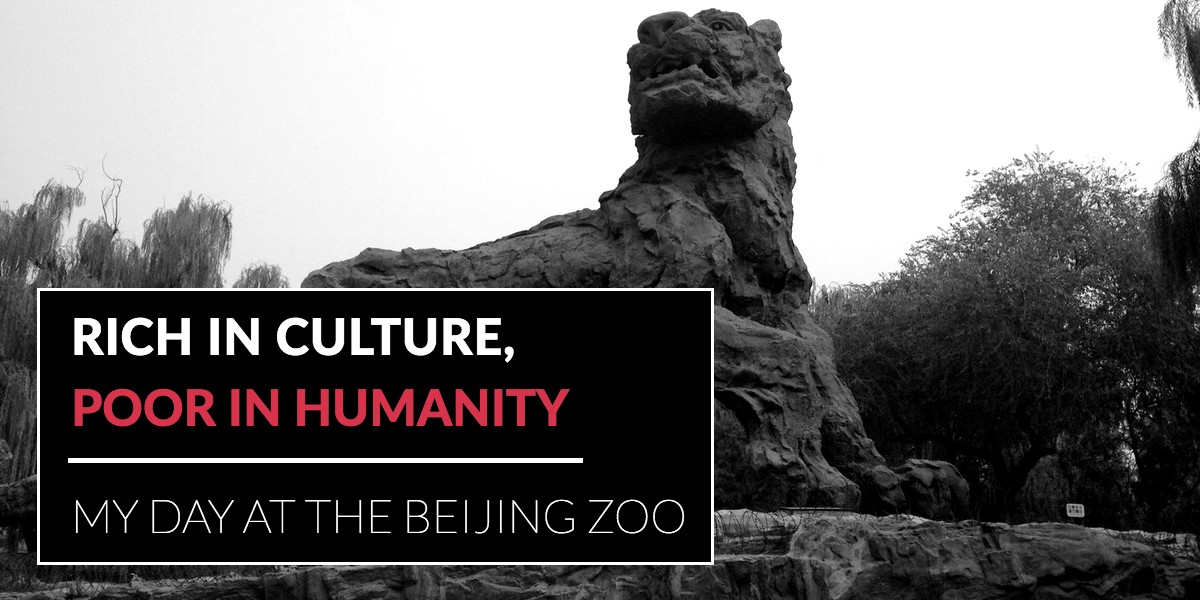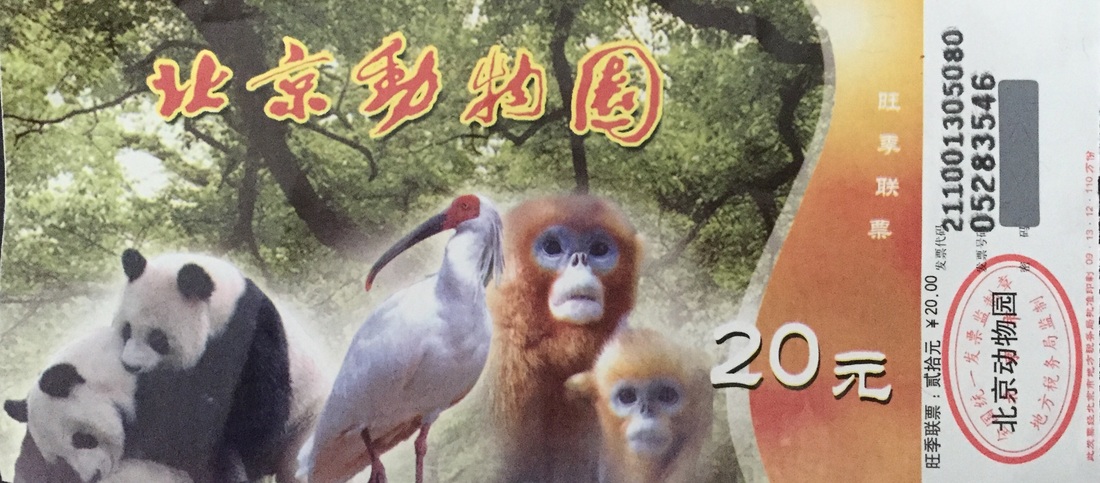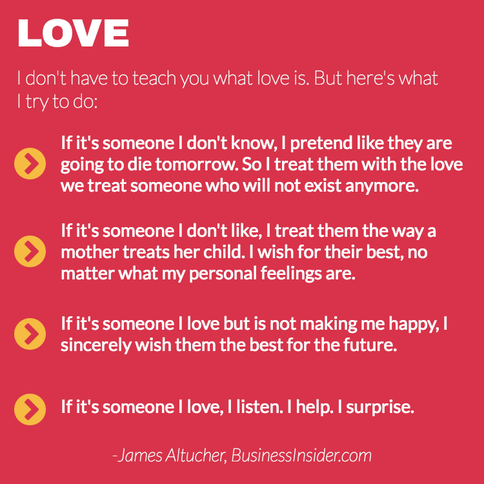|
As I mentioned in my very first post, a particular incident a year prior was the spark that lit the writing fire. My writing endeavors have always been something I put on the back burner, something I wasn’t interested in sharing with many people, if any at all.
A day in mid-October 2014 changed that. Despite my best efforts, it has been the ultimate challenge to express this particular experience in an eloquent fashion because it infuriates me to the point of no words even today. On more than one occasion, I have just stared at my laptop screen for hours flipping through pictures and remembering the day that my friends and I ventured to the Beijing Zoo. The only thing I consistently produce when thinking about how to narrate our trip is blurred vision from tears.
More than two years ago, I found myself in Beijing, China with a group of friends I also called my teammates. Texas State University had just won the 2014 Enactus National Championship and as such, represented the United States at the Enactus World Cup. We spent nearly a week in Beijing, spending our limited time competing and seeing as much of the city as would fit into the short trip. Towards the end of our stay, a few of us decided to explore one more time and chose the Beijing Zoo as our last tourist stop. It would also be the last time I would voluntarily visit a zoo.
I can say with without a fraction of hesitation that the Beijing Zoo is the most depressing place I have ever had the misfortune of experiencing.
I am an emotional person – I’m not naïve to this. At either end of the emotional spectrum, tears will fall. If I’m beyond myself excited, I’m crying. If I’m watching a sad movie, there’s a high probability that I will be crying before the credits start rolling. Kristin Bell understands this (for a good lauch, check out her interview on Ellen here). Even being an expert on the rollercoaster that is my emotions, there is nothing I could have done to prepare myself for the sorrow that would ensue.
The vast majority of the animals in the Beijing Zoo were neglected in one way or another. As an animal lover, my heart broke for every one of them. I found myself walking around with my phone in constant camera mode, snapping picture after picture out of disbelief, as if I needed proof that what I was seeing was real. Between the insufficient bird enclosures, the sodden bears begging for food, the emaciated big cats, and the depressing elephant enclosures, there was a lot to take in. Here's a few images with notes. I also posted videos on YouTube.
Pictures from the last few habitats are currently missing, so I'll try to paint a picture. The hippos lived in deplorable conditions that rivaled that of the elephants. A mother and baby hippo were submerged in a tank no bigger than the average aboveground pool that was the consistency and color of mud – the animals were forced to soak in their own waste without access to fresh water or land. The hippo calf wasn’t tall enough to keep its head above water, so it would surface for a few minutes doing what I can only assume to be was treading water, before resting underwater again. Who knows how long they had been kept stationary in the tank – it didn’t appear large enough for the mother hippo to even be able to turn around.
Perhaps the most senseless part of the whole experience was the stark contrast between the zoo’s plants and gardens and the animals. The ONLY sign of life, prosperity, or contentment in that place radiated not from the pandas or tigers, but from the plants. The gardens were immaculate. The animal enclosures were dilapidated and starved. Sadly, this type of neglect and abuse is far from being an isolated incident. I came across a story posted on the South China Morning Post website after disturbing images of a lion and Bengal tiger went viral following a concerned zoo visitor's post about them online. The zoo’s pathetic attempt of a response? The lion suffered from a genetic disorder causing him to be bony. More details are listed on DoDo and several additional images can be seen on the Shanghaiist.
I am confident in the idea that the atrocities left in plain sight for tourists to view are just a small sample of the inhumane reality animals of the Beijing Zoo live with every day. It’s clear that the Beijing Zoo does not exist for the purpose of education or animal conservation. In fact, it seems to be quite the opposite. The biggest problem these animals face does not stem from genetic disorders, depleting resources, or poaching.
THE BEIJING ZOO IS THE PROBLEM. AND IT'S A BIG ONE. Besos! For more on elephants, check out my post Elephants and Why They Never Forget.
0 Comments
It's amazing how many other things I can find to do when I need to be studying. Naturally, the moment I sat down at my desk this morning, countless articles that I just had to read made their way onto my browser. The two I wanted to pass along are business related and center around optimism in dissimilar fashion.
Recently, I learned from someone very important to me that I am an optimist. I say that not as some revelation of my demeanor - I do try to be optimistic in all of my encounters with other people (though it's not a habit that has made a permanent home in how I view my own situations). It caught me off guard though because it was described as overbearing in the sense that I can be optimistic to the point of being unrealistic. There's probably some truth in that. But wouldn't you rather be surrounded by people that think you are the greatest thing since sliced bread? People love to be loved and in my personal opinion, one of the ways to convey that adoration is to act as your beloved's biggest cheerleader. The first article I wanted to share is titled Habits of Eventual Millionaires by James Altucher. He presents several excellent ideas, some of which I'm currently testing myself, but the one that distracted me from moving onto finance studies was the section about love. What a sap, right?
Find your people, your tribe, and love them. Additionally, consider some of the other suggested habits so that one day you can also love having financial freedom. I like the label of eventual millionaire.
The second article, 5 Ways An Overly Optimistic Outlook Can Hold You Back from Success, lays out the ways being too optimistic is damaging to your career. We've all heard that too much of a good thing is a bad thing and Amy Morin articulates the negative impact of being overly optimistic from a business angle. The takeaway from these pieces is that it's critical to believe in yourself, to surround yourself with people that believe in you, and to discern the difference between wishful thinking and positive thinking. Both are worthwhile reads and only require about 20 minutes of your time. Here's to a life saturated with love and millions! Besos! |




 RSS Feed
RSS Feed